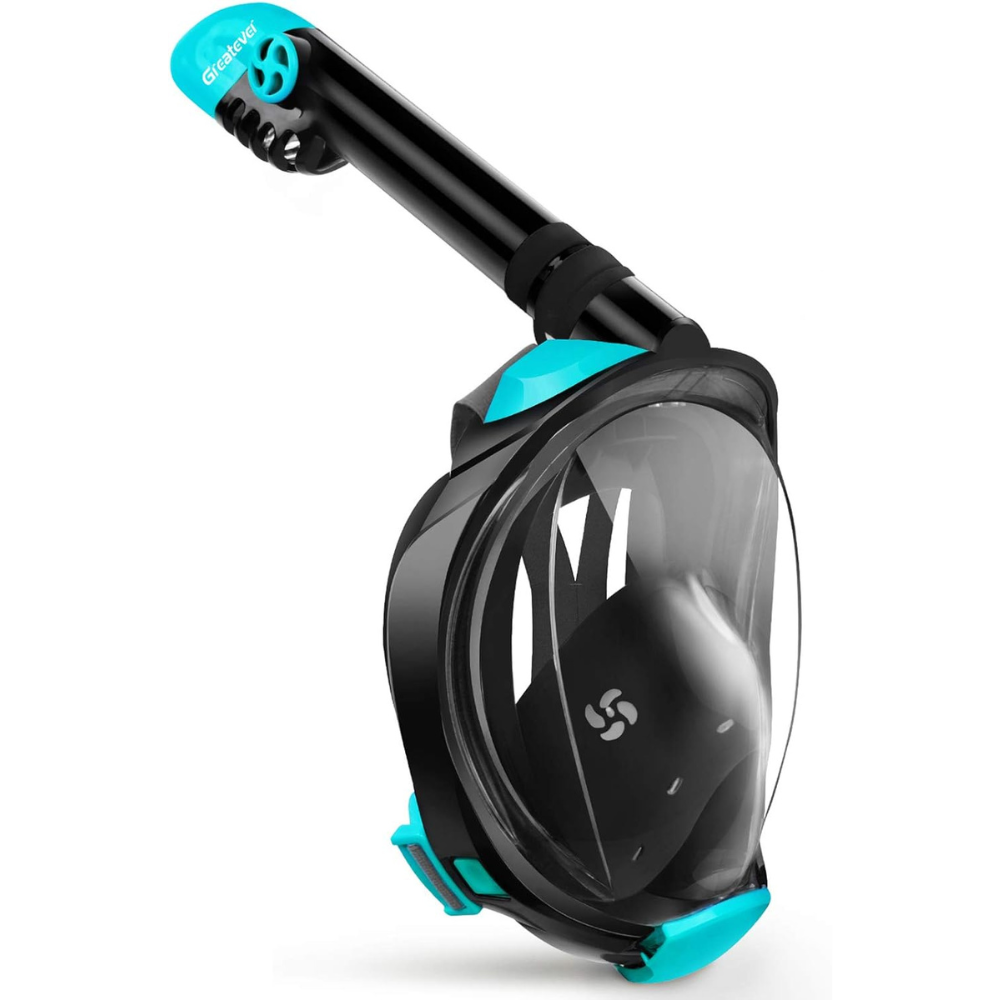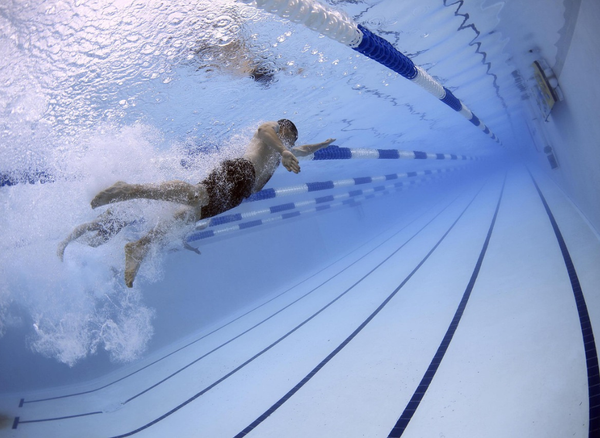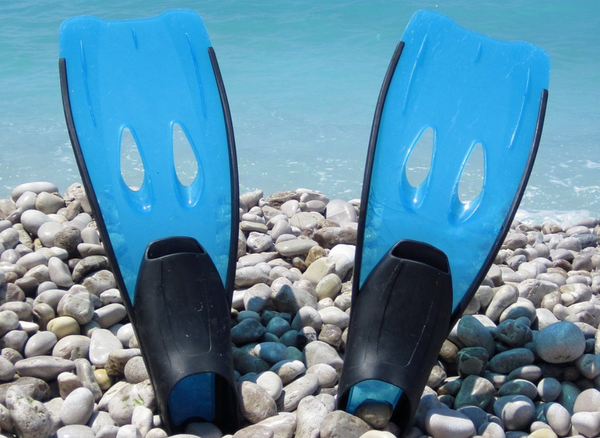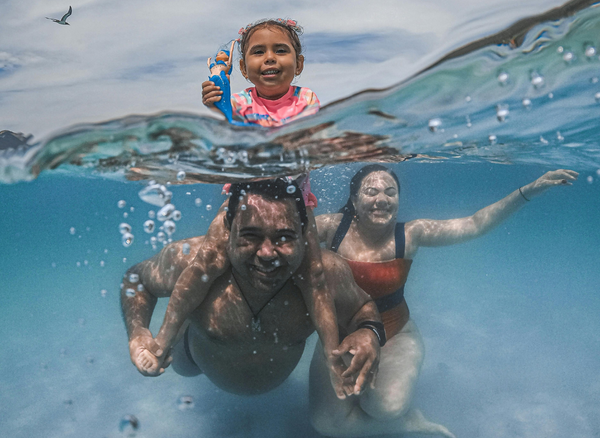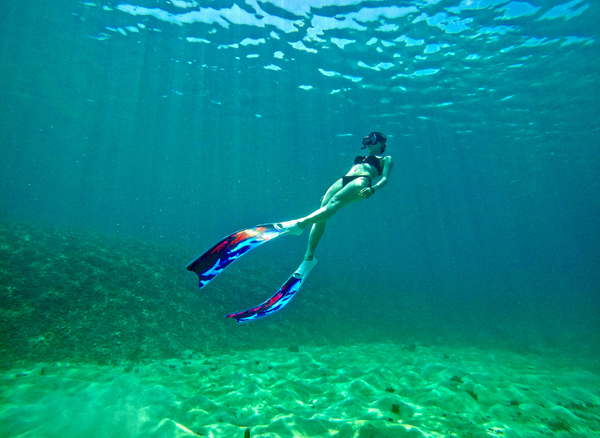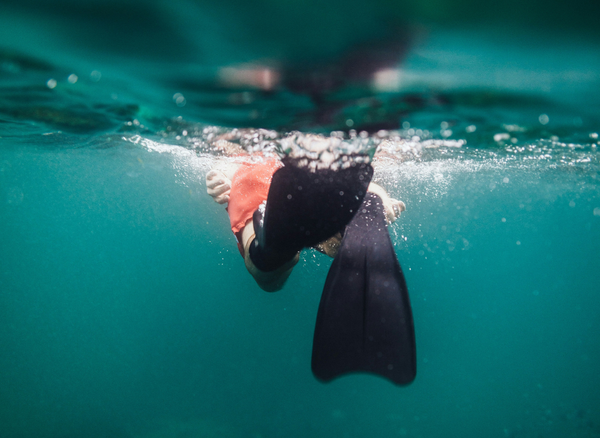Ah, the ocean! A vast, mysterious playground teeming with life. Whether you're a seasoned diver or a casual snorkeler, the right gear can make your underwater adventure a true adventure. Today, we're diving into the water for a showdown of the full face snorkel mask vs regular snorkel mask.
Breathing
Full Face Snorkel Masks
A full face snorkel mask are easier for beginners. Imagine floating on the water, taking in the ocean life without the hassle of a separate snorkel tube. It's like breathing on land—simple and intuitive.
However, this convenience comes with a caveat. Full face masks can sometimes create a false sense of security. The air circulation system must be top-notch to prevent carbon dioxide buildup, which can lead to dizziness or worse. Always ensure your mask has ample airflow to keep you safe.
Traditional Snorkel Masks
This can be a bit of a learning curve, especially if you're new to snorkeling. But once you get the hang of it, it's like riding a bike—you never forget.
The bite valve on the snorkel tube might feel awkward initially, but it ensures a steady flow of air. Plus, traditional masks are often more reliable in terms of air circulation, reducing the risk of carbon dioxide buildup. So, if you're willing to put in a bit of practice, traditional masks offer a safer breathing experience.
Visibility
Full Face Snorkel Masks
The flat lens design covers your entire face, offering maximum visibility. It's like having a front-row seat to the underwater world, with no blind spots to miss that elusive sea turtle or colorful coral.
But beware, this wide field of vision can sometimes distort your perception, especially around the edges. It's like looking through a fishbowl—great for casual snorkeling but not ideal for spotting tiny details or navigating tricky underwater terrain.
Traditional Snorkel Masks
The smaller lens area means less distortion, making it easier to spot intricate details. But you might miss out on the broader picture, like that school of fish swimming just out of your peripheral vision.
Comfort
Full Face Snorkel Masks
A full-face snorkel is ideal for low-impact surface swimming and extended periods in the water. No more jaw fatigue from biting down on a snorkel tube!
However, the fit can be a bit tricky. If the mask doesn't match your face shape perfectly, you might experience leaks or discomfort. It's like trying to fit a square peg into a round hole—frustrating and ineffective.
Traditional Snorkel Masks
You can adjust the straps and bite valve to suit your comfort level. But this flexibility comes at a cost. The separate components can be cumbersome to manage, especially for beginners. It's like juggling—once you get the hang of it, it's second nature, but until then, it can be a bit of a hassle.
Safety
Full Face Snorkel Masks
Safety is a concern with full face masks. This can result in dizziness, headaches —a nasty surprise when you're trying to enjoy diving.
Always opt for high-quality masks from reputable brands to minimize these risks. Look for features like separate inhalation and exhalation chambers to ensure ample airflow and reduce the risk of carbon dioxide buildup.
Traditional Snorkel Masks
The separate snorkel tube allows for more reliable air circulation, reducing the risk of carbon dioxide buildup. It's like comparing a manual car to an automatic—less convenient but more reliable.
However, traditional masks come with their own set of challenges. The need to equalize water pressure and manage the snorkel tube can be daunting for beginners. But with practice, these tasks become second nature, making traditional masks a safer option for experienced snorkelers.
Versatility
Full Face Snorkel Masks
Their design allows for natural breathing and maximum visibility, making them ideal for a relaxing time skimming the ocean's surface. It's like floating on a cloud—effortless and enjoyable.
However, they're not suitable for more serious diving activities. The enclosed design makes it difficult to equalize water pressure, limiting their use to shallow waters. So, if you're planning to explore deeper waters, a full face mask might not be the best choice.
Traditional Snorkel Masks
Their simpler design allows for easier equalization of water pressure, making them ideal for exploring deeper waters. It's like having a multi-tool—versatile and reliable.
However, this versatility comes with a learning curve. Managing the separate snorkel tube and mask components can be challenging for beginners. But once you master the basics, traditional masks offer a more flexible and reliable snorkeling experience.
Our 🏅 pick for a snorkel mask:
Why we ❤️ this mask
The Greatever G2 full face snorkel mask will help you enjoy your time out in the open water without the worry of fogging or leaks. The design ensures a secure comfortable fit. The integrated snorkel feature allows for effortless breathing, eliminating the concern of accidentally inhaling water. With its crystal-clear panaromic visibility and ease of use, the Greatever G2 is my go to mask for a fun snorkeling adventure.
🤿 features
- panoramic view
- support camera mount
- folding design
- two-channel exhaust valve
- easy for breathing smoothly
- comfortable
- anti-fog design
Full Face Snorkel Mask vs Traditional Mask FAQs
Which mask is better for beginners?
Full face snorkel masks are generally better for beginners due to their natural breathing design and panoramic view.
Are full face snorkel masks safe?
Full face snorkel masks can be safe if they have a good air circulation system to prevent carbon dioxide buildup.
Can I use prescription lenses with a full face snorkel mask?
Most full face snorkel masks do not accommodate prescription lenses. Traditional snorkel masks are a better option if you need visual aids.
Are full face snorkel masks better?
It ultimately depends on personal preference and needs. Full face snorkel masks offer a more comfortable and panoramic view, while traditional snorkel masks are generally considered safer with better air circulation.
Can I use a full face snorkel mask for diving?
Full face snorkel masks are not recommended for diving as they make it difficult to equalize water pressure. Traditional masks are a better option for more serious diving activities.
Is there an age limit for using full face snorkel masks?
Some manufacturers recommend that children under the age of 12 should not use full face snorkel masks due to
Summary
Choosing between a full face snorkel mask and a traditional snorkel mask boils down to your snorkeling style, comfort, and safety preferences. Full face masks offer natural breathing and maximum visibility, making them ideal for beginners and casual snorkelers. However, they come with safety concerns related to carbon dioxide buildup. Traditional snorkel masks, while requiring a learning curve, provide a more reliable and versatile experience, suitable for both casual and serious snorkeling activities.
Some of the links on this website may generate an affiliate commission, at zero cost to you. As an Amazon Associate, we earn from qualifying purchases. Your subscription and associate links helps make this site possible; and allows Gold Medal Ratings to exist. Thank you!




